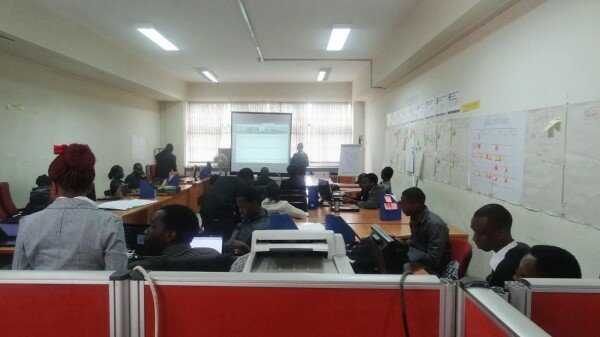
The University of Nairobi’s (UON) Centre of Computing for Development Lab (C4DLab) has begun incubating and supporting startups
The C4DLab comes under the School of Computing and Informatics, which is mandated to do training, consulting and research in ICT and whose faculty teaches software development, computer networks and computer hardware.
Speaking to HumanIPO, faculty member Dr Tonny Omwansa explained the intention was to first have a C4D centre, but because of university policy that requires such concepts to be done in various phases of approval, they decided to come with the C4D computing for development lab that would operationalise the objectives of the centre as they wait for approval.
“We realise we take most of the students through conventional technical training for theoretical and practical aspects in the lab to understand the technical skills of computing, but because society evolves, job opportunities are not always available for everyone,” said Omwansa.
“So we thought we need to strengthen the training program by giving students entrepreneurial skills and creating for them an environment to develop ideas that can translate into business.
“Those who are passionate about business use the lab as a platform where they get practical skills, we mentor them and we link them to industry partners who can mentor them or develop projects jointly with them.”
Among the startups to come out of the centre is Chura, which eases difficulties users’ experience in accessing services across different mobile service providers.
Another startup is working in partnership with Kenyan payment gateway JamboPay on a fundraising app that will help non-governmental organisations (NGOs) mobilise funds for projects which will be launched soon after a successful testing period while FundVijana is a crowd-funding platform for the youth and FarmDrive is a book-keeping innovation for the farmers.The last two are still being developed.
There are also games for learning, developed from the lab, for lower primary school children, and it is engaging the Ministry of Education to have them included in the computer for schools project that the government is currently undertaking.
The games come from conventional teaching materials and can be used to teach in a fun way.
The university has a theoretical lab which it funds in conjunction with other partners and students organise themselves into groups and go into the lab where they are mentored on their ideas. After orientation they are given the environment to work on their ideas.
Since the lab has only been operational for less than a year it is quite flexible on how long incubation periods should last.
While the lab is open for students from other faculties within the institution who would like to collaborate with computer science students, it is not open for students from other universities.
The only requirement is that all the ideas born from the lab should have a computing aspect to it.
So far they have been working with architectural students, design students and art students. There is currently a project with Nokia which is multidisciplinary.
Students are not charged anything to work in the lab with sponsors supporting specific projects.
The impact of the lab is being been felt regionally as well, with some students going to Kigali to participate in a competition where several groups were asked to make applications to aid in agriculture.
Apart from training, mentoring and creating a conducive environment, the university has engaged with intellectual property to register the startups coming from the lab as a way of supporting them.
There is also the university’s open day which is open to the public and allows students to exhibit their projects.
One upcoming international collaboration is with the Massachusetts Institute of Technology (MIT), in the United States, which has a centre supporting entrepreneurship in developing markets.
“For us we have the strength of working with other universities and within two years I believe we will have created several more partnerships,” Omwansa said.
Nokia has set up a lab at the school to help students work on applications for them and IBM has also called in for a collaboration.
C4D’s next vision is to build a centre with three floors dedicated to its startup projects.

















